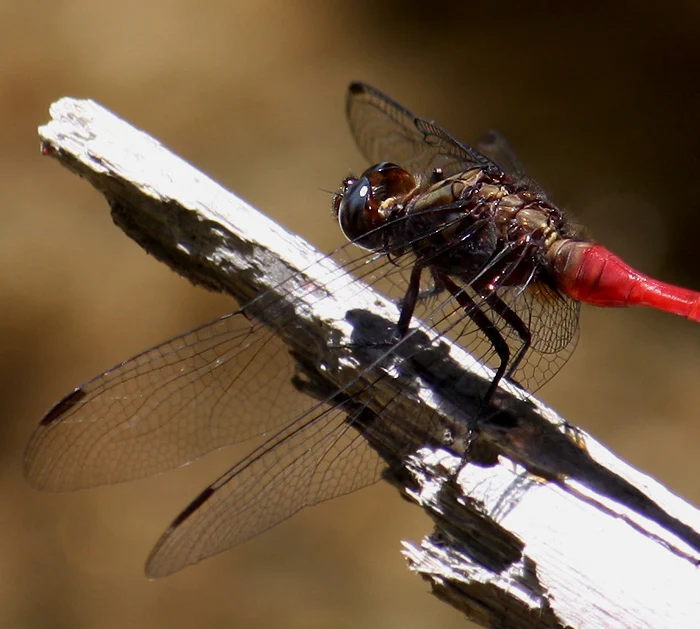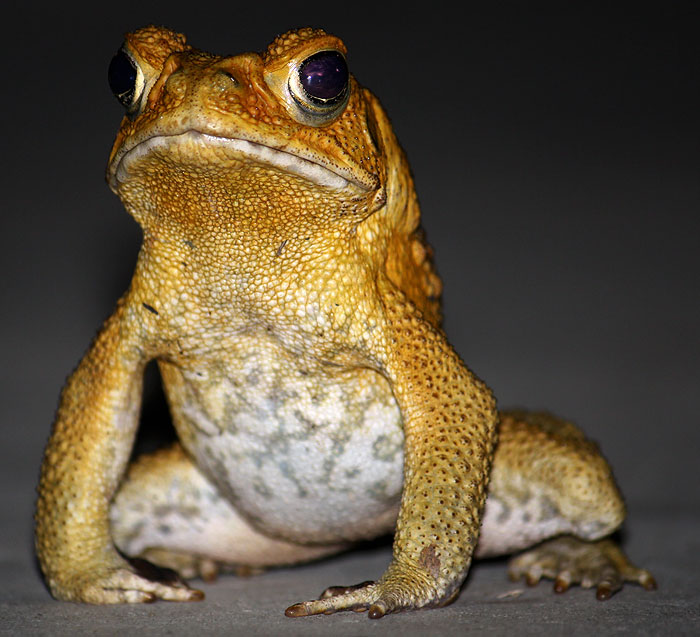Dry In The Wet Tropics
The dry season is getting on my tits. The brown grass, the fine and mildly depressing film of dust covering everything and the endless, bloody amount of Australian rules footy on the T.V have all combined to leave me feeling fractious and prickly ...
Sorry.
Of course, these are luxury problems and it's just that time of year. Funnily enough we've had some absolutely brilliant visitors to the garden over the last while including a juv bandicoot - who reduced me and Jo to floppy gasps and ooohhh's when it bumbled through the other evening. It regarded everything in that strangely cautious yet cavalier way that they have. There is also a young fruit bat who roosts for a time every evening on the same banana plant - like clockwork.
Both very cute.
And would you believe that the sunbirds have done it again? ... Same nest - same drama with the beer fridge - we obviously make good neighbours.
Either that or there's some avian conspiracy to prevent me from having a cold beer ...
... the bastards.
The snakes are also active. Our two resident keelbacks (one yellow - one a pretty speckled grey), have been spied. I even managed a pic of ol'e yeller consuming a cane toad ...
Who's a good snake then eh?s
The other keelback (below) has been no shrinking violet either - we've watched her on a few occasions slipping through the grass (straw) at dusk (keelbacks are predominantly crepuscular), but can be seen at any time. They're the mobile speed camera of reptiles.
As I said, water is precious at the moment and if the juv green tree frog below had the capacity, I've no doubt it would've sighed when it plopped into the only standing body around - the bird bath.
God alone knows what 'Willy' would've done had it still been there in the morning ...
The green tree frog wasn't the only amphibian to be found clinging on in less than hospitable conditions - this stoic little graceful tree frog, (below) has claimed a leaf all its own and seems determined to stay there until the rains come (or the plant dies) - whichever comes first.
Further afield, Jo and I went for a cruise in the trusty 4b the other weekend - just for fun and to have a look around. We stopped at a creek and had a small cursory explore ... this spider was a bit of a challenge and I ended up a tad soggy, but what a critter ...
In the creek bed we collected a small amount of alluvial tin that shines a little like silver - but you know ... isn't. Fun all the same ...
The waterway was being patrolled by one of my favourite insects - I watched it as it tracked the path of a small tadpole - a throwback to it's youth no doubt ...
And then on a causeway and adjacent creeks we found these ponderously large tadpoles who I think are northern barred frog young - some were well over 100mm in length and it was fantastic to see them in quite large numbers.
I hope to get a shot of an adult to share with you in the not too distant future - beautiful frogs that they are.
There's more (there always is eh?), but the weekend sunshine is calling, and you've no doubt got better places to be also ... so until next time, take care. Paul :)
Sorry.
Of course, these are luxury problems and it's just that time of year. Funnily enough we've had some absolutely brilliant visitors to the garden over the last while including a juv bandicoot - who reduced me and Jo to floppy gasps and ooohhh's when it bumbled through the other evening. It regarded everything in that strangely cautious yet cavalier way that they have. There is also a young fruit bat who roosts for a time every evening on the same banana plant - like clockwork.
Both very cute.
And would you believe that the sunbirds have done it again? ... Same nest - same drama with the beer fridge - we obviously make good neighbours.
Either that or there's some avian conspiracy to prevent me from having a cold beer ...
... the bastards.
The snakes are also active. Our two resident keelbacks (one yellow - one a pretty speckled grey), have been spied. I even managed a pic of ol'e yeller consuming a cane toad ...
Who's a good snake then eh?s
 |
Tropidonophis mairii note the toe of the toad protruding from the corner of the snakes mouth |
The other keelback (below) has been no shrinking violet either - we've watched her on a few occasions slipping through the grass (straw) at dusk (keelbacks are predominantly crepuscular), but can be seen at any time. They're the mobile speed camera of reptiles.
 |
Hello handsome |
 |
Quite right - don't let me interrupt ya |
 |
Wide-eyed and ready for a feed |
As I said, water is precious at the moment and if the juv green tree frog below had the capacity, I've no doubt it would've sighed when it plopped into the only standing body around - the bird bath.
 |
Litoria caerulea |
God alone knows what 'Willy' would've done had it still been there in the morning ...
 |
"Willy Wagtail" |
 |
Rhipidura leucophrys |
The green tree frog wasn't the only amphibian to be found clinging on in less than hospitable conditions - this stoic little graceful tree frog, (below) has claimed a leaf all its own and seems determined to stay there until the rains come (or the plant dies) - whichever comes first.
 |
Litoria gracilenta |
Further afield, Jo and I went for a cruise in the trusty 4b the other weekend - just for fun and to have a look around. We stopped at a creek and had a small cursory explore ... this spider was a bit of a challenge and I ended up a tad soggy, but what a critter ...
 |
Dolomedes facetus |
In the creek bed we collected a small amount of alluvial tin that shines a little like silver - but you know ... isn't. Fun all the same ...
 |
Water ... finally! |
The waterway was being patrolled by one of my favourite insects - I watched it as it tracked the path of a small tadpole - a throwback to it's youth no doubt ...
 |
More dragonflies! |
And then on a causeway and adjacent creeks we found these ponderously large tadpoles who I think are northern barred frog young - some were well over 100mm in length and it was fantastic to see them in quite large numbers.
 |
Mixophyes schevilli |
The Northern Barred Frog inhabits dense tropical rainforest, close to fast-flowing streams. It usually hides and hunts in leaf litter. Like Mixophyes iteratus and Mixophyes fasciolatus, this species lays its eggs on the banks of streams. Rain then washes them into the stream where the tadpoles hatch.
The tadpoles are very large, reaching a length of 12.5 centimetres. The males call from high banks, making a deep "wahk" sound.
I hope to get a shot of an adult to share with you in the not too distant future - beautiful frogs that they are.
There's more (there always is eh?), but the weekend sunshine is calling, and you've no doubt got better places to be also ... so until next time, take care. Paul :)
Dolomedes facetus: Hunts beside the water, diving for small fish and insects. Although not the same family as the European Water Spider that builds a bell of air in its underwater web, Dolomedes is quite capable of diving and running across the bottom and remaining there for up to at least one hour. Main prey are fish, tadpoles, aquatic insects including moths and possibly toads, but that has not been confirmed.






Comments
Post a Comment